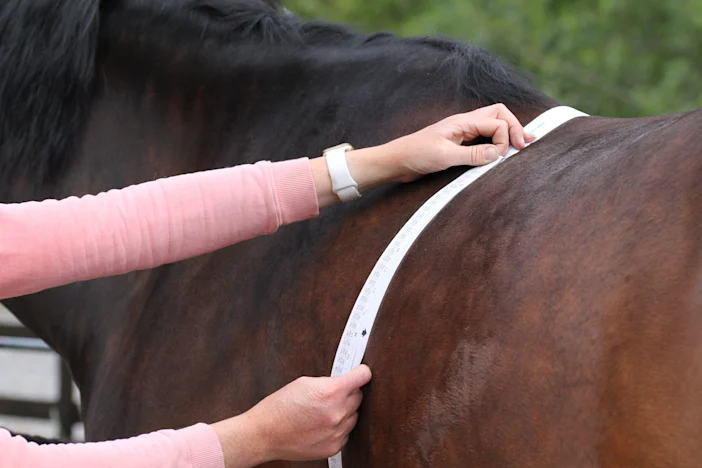Close
Our Products
All Products
Pleasure
Performance
Conditioning
Fibre
Breeding & Stud
Racing
Specialty
Supplements
Quick Feed finder
Free Diet Analysis
The Complete Range
Nutrition Centre
Articles
All About Fibre
Feeding for Condition
Competition Season
Laminitis
Breeding
Foal care
Building Topline
Gut Health
Senior horses
Racing & Breeding
Feeding in a Drought
Tools & Calculators
Competitions / Offers
Our Riders
Brand ambassadors
Junior Squad
About Barastoc
Why Barastoc
Our commitment
Barastoc's People
Our communities
Partnering with KER
Partnering with BHF
Sustainability
Find a Stockist
Contact Us

Managing Weight in Senior Horses: Keeping the Right Balance
As horses age, their metabolism changes, and maintaining the right body condition becomes more of a balancing act. Some senior horses struggle to keep weight on, while others gain too easily, particularly if their activity levels decrease.
Finding the right nutritional approach is key to keeping senior horses healthy, comfortable, and in peak condition, whether they need extra support to gain weight or careful management to prevent excess weight gain.
Why Do Senior Horses Struggle with Weight? Aging affects digestion, metabolism, muscle tone, and overall energy balance in different ways. Some older horses become hard keepers, losing condition despite being fed well, while others put on weight due to reduced movement and metabolic shifts. The main reasons senior horses struggle with weight include: • Decreased digestive efficiency –Older horses absorb fewer nutrients from their feed, making it harder to maintain weight. • Dental issues –Missing or worn teeth make chewing hay and hard feeds more difficult, leading to reduced calorie intake. • Slower metabolism –Less work or exercise can lead to weight gain, particularly if diet isn’t adjusted accordingly. • Underlying health conditions –Conditions like PPID (Cushing’s disease) can affect metabolism and weight regulation.
Understanding which challenge your senior horse is facing helps determine the best feeding strategy.
For Underweight Senior Horses: How to Build Condition Safely Some older horses lose muscle, topline, and body condition as they age. Simply increasing grain or starch isn’t always the best approach, as digestibility and gut health must be considered.
1. Prioritise Highly Digestible Fibre Since senior horses may struggle to extract enough energy from forage alone, adding a fibre-rich, easily digestible feed is essential. • Barastoc Senior is designed to be gentle on digestion while providing balanced energy for maintaining condition. • Barastoc Fibre-Beet Mash is an excellent conditioning fibre mash that complements Barastoc Senior, helping older horses build weight without excessive grain, starch or sugar.
2. Increase Caloric Intake Without Overloading Starch High-starch diets can cause digestive upset and metabolic imbalances, particularly in older horses. Instead, focus on slow-release energy sources such as: • High-fibre, soakable feeds (Barastoc Senior, Fibre-Beet Mash, Speedi-Beet) • Fat-based energy sources (vegetable oils, rice bran) • Digestible protein for muscle maintenance
A combination of Barastoc Senior and Fibre-Beet Mash provides sustained energy, fibre, and gut-friendly nutrition to support weight gain safely.
3. Ensure Adequate Forage & Feeding Frequency Senior horses benefit from multiple small meals throughout the day rather than two large feeds. Providing ad-lib hay or haylage can also help prevent weight loss. If chewing hay is a challenge, soaked hay cubes or fibre-based mashes like Barastoc Fibre-Beet Mash can replace lost forage intake.
For Overweight Senior Horses: How to Manage Condition Without Losing Essential Nutrition Some senior horses gain weight too easily, particularly if they are retired or in reduced work. Simply cutting back on feed can lead to nutrient deficiencies, so the focus should be on low-calorie, nutrient-dense feeding.
1. Adjust Calories, Not Nutrients Overweight horses still require essential amino acids, vitamins, and minerals for muscle maintenance, immune function, and joint health. Reducing feed quantity too much can result in nutritional gaps, so choosing a low-starch, fibre-based feed is ideal. • Barastoc Senior provides balanced nutrition without excess calories • If additional fibre is needed without weight gain, Speedi-Beet can be used to maintaining fibre intake without the additional calories. • A fibre source like Barastoc Fibre-Beet Mash or Speedi-Beet along with a balancer pellet like Barastoc KER Stud Balancer or Barastoc Groom can be used to ensure your horse is receiving a balanced diet without the calories.
2. Encourage Movement & Metabolism Even if work levels have decreased, senior horses still need daily movement to maintain weight balance and joint health. Light exercise, turnout, and hand-walking can help keep weight under control while supporting overall well-being.
3. Monitor Body Condition Regularly Using a Body Condition Score (BCS) chart ensures that changes in weight are caught early before they become a concern.
Rather than relying on visual cues alone, feeling along the ribs, spine, and withers weekly helps track condition accurately. Overweight horses may still carry excess fat even if they appear to have lost muscle, so monitoring both weight and muscle tone is essential.
The Right Balance: Feeding for Long-Term Health Managing condition in senior horses is about finding the right combination of digestible fibre, balanced nutrients, and appropriate calorie intake.
For horses that need extra conditioning, combining Barastoc Senior with Fibre-Beet Mash creates a nutrient-rich, fibre-based diet that promotes weight gain without digestive stress. For those that gain weight too easily, a carefully managed feeding program that prioritises low-starch fibre intake and controlled calorie levels ensures good health without unnecessary weight gain.
By making small, consistent adjustments, monitoring condition, and choosing the right feeds, senior horses can maintain an ideal body weight and enjoy their later years in the best possible health.